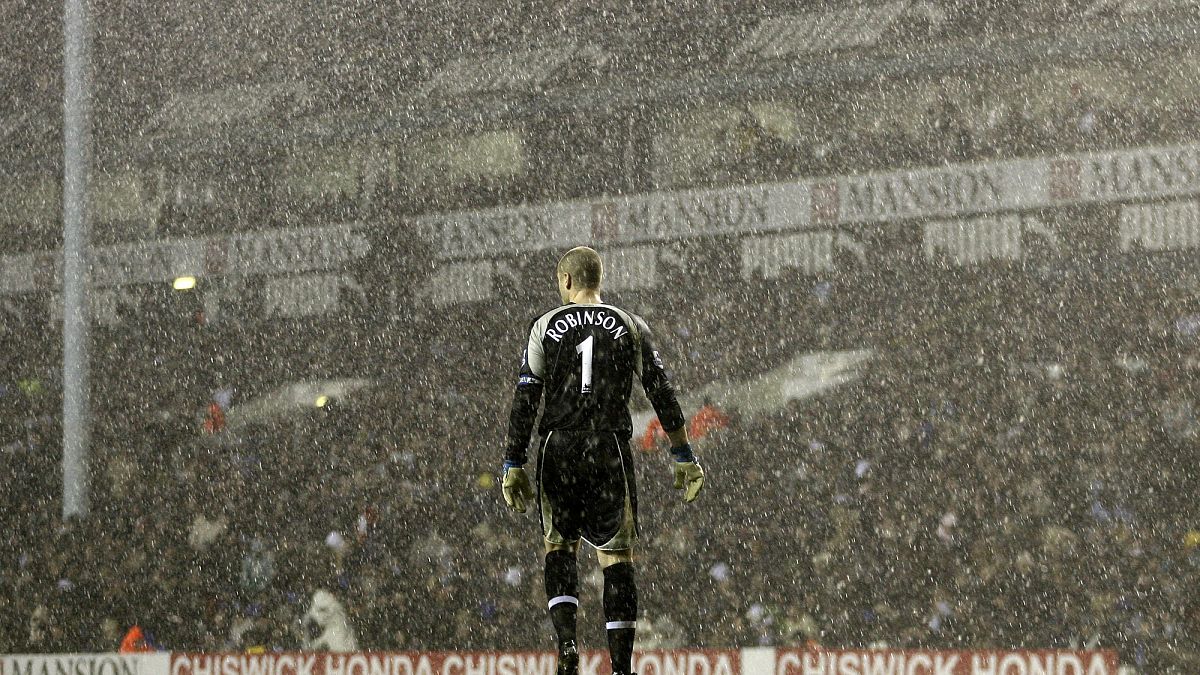Football, tennis, rugby, the Olympics — all have already been impacted by climate change. The industry is part of the problem, a new report has found.
The sporting industry is "playing against the clock" and faces major disruptions because of climate change, a new report is warning.
Summer and Winter Olympics, top-tier football leagues, tennis, athletics, golf and cricket are all already impacted by changing meteorological patterns but the worse is yet to come, the report from the Rapid Transition Alliance states.
It warns that within the next three decades, one-quarter of English league football grounds will be at risk of flooding every season, one in three British Open golf course will be damaged by rising sea levels, and half of previous Winter Olympic cities will be unreliable hosts of winter sports.
It highlighted that several high-profile sporting events have already been disrupted because of climate change.
Unprecedented pacific typhoons led to some matches being cancelled during the 2019 Rugby World Cup in Japan; the New York triathlon, as well as multiple horse races, were also cancelled in 2019 because of a heatwave in the Northern hemisphere.
During the 2014 Australian tennis Open — when four days of above 41C temperatures were recorded — more than 1,000 fans were treated for heat exhaustion, Caroline Wozniacki's plastic bottle melted as did Wilfred Tsonga's shoes.
Earlier this year, the tournament was disrupted by the smoke blowing in form devastating bush fires.
The 2018 US Open saw five players retire for heat-related reasons. Temperatures on court reached 49C leading to the first use of the tournament's extreme heat policy which plans for longer breaks during matches.
Meanwhile, the organisers of the 2010 Vancourter Winter commented that "the warmest weather on record... challenged our ability to prepare fields of play for athletes in the venues at Cypress Mountains" while competitors in Sochi, in 2014, complained of the lack of snow.
As for Summer Games, Tokyo 2020 organisers were forced to move long distance running events nearly 1,000 kilometres north of the capital because of the city's sweltering summer weather.
"Sport is not just a victim of change, however, but an important contributor too," the report writes.
"The IOC [International Olympic Committee] has a carbon footprint close to that of Barbados, global football's is even larger. Sporting events are responsible for massive levels of aviation, carbon-heavy stadium construction, and mountains of unrecycled garbage, all making a significant contribution to the catastrophe now engulfing us," it adds.
Andrew Simms, coordinator of the Rapid Transition Alliance, stressed that "sport provides some of society's most influential role models".
"If sport can change how it operates at the speed and scale necessary to halt the climate emergency, more will follow. If its players also speak out and say they believe clean air and a stable climate matter, millions more will see the possibilities for change," he added.
For the organisation, a first step would be to end sponsorships from fossil fuel companies. It then urges all global sporting federations, professional sports leagues and tours to sign the UN Sport for Climate Action Framework and calls for the Framework to be tougher.
It suggested that come 2030, any global sports events or tours that are not carbon neutral be cancelled or postponed until they are and that sports federations that are not carbon zero be excluded from the Olympics.
Fewer tournaments and competitions may also be part of the solution, it added.
